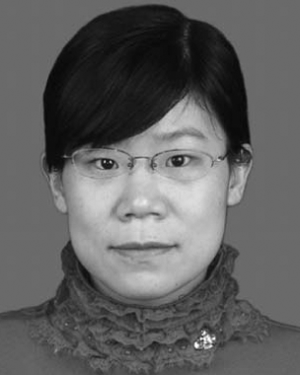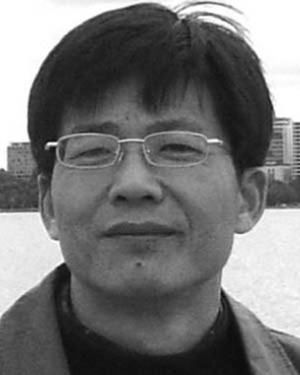Abstract:
This paper is concerned with both difference and differential leader-follower games with time delay. The problem remains challenging although the leader-follower game for...Show MoreMetadata
Abstract:
This paper is concerned with both difference and differential leader-follower games with time delay. The problem remains challenging although the leader-follower game for delay-free system has been well studied in the past decades. The main obstacle encountered is the noncausality of strategy design caused by the delay. The key technique developed to overcome the difficulty is the introduction of the new co-states which capture the future information of the control and the new state which contains the past effects. The novel contributions of this paper are as follows. First, the sufficient and necessary solvability condition is given to ensure the existence of a unique open-loop Stackelberg strategy for the difference game. Second, the open-loop strategy is explicitly obtained in terms of decoupled and symmetric Riccati equations. Last but not least, a unique strategy for continuous time systems is also given by applying the techniques developed in this paper.
Published in: IEEE Transactions on Cybernetics ( Volume: 46, Issue: 2, February 2016)
Funding Agency:

School of Control Science and Engineering, Shandong University, Jinan, China
Juanjuan Xu received the B.E. and M.E. degrees in mathematics from Qufu Normal University, Qufu, China, and Shandong University, Jinan, China, in 2006 and 2009, respectively, and the Ph.D. degree in control science and engineering from Shandong University, in 2013.
She was a Post-Doctoral Researcher at the School of Control Science and Engineering, Shandong University. Her current research interests include distributed con...Show More
Juanjuan Xu received the B.E. and M.E. degrees in mathematics from Qufu Normal University, Qufu, China, and Shandong University, Jinan, China, in 2006 and 2009, respectively, and the Ph.D. degree in control science and engineering from Shandong University, in 2013.
She was a Post-Doctoral Researcher at the School of Control Science and Engineering, Shandong University. Her current research interests include distributed con...View more

School of Control Science and Engineering, Shandong University, Jinan, China
Huanshui Zhang received the bachelor’s degree in mathematics from Qufu Normal University, Qufu, China, in 1986, and the M.Sc. and Ph.D. degrees in control theory from Heilongjiang University, Harbin, China, and Northeastern University, Shenyang, China, in 1991 and 1997, respectively.
From 1998 to 2001, he was a Post-Doctoral Fellow at Nanyang Technological University, Singapore, and a Research Fellow at the Hong Kong Polyt...Show More
Huanshui Zhang received the bachelor’s degree in mathematics from Qufu Normal University, Qufu, China, in 1986, and the M.Sc. and Ph.D. degrees in control theory from Heilongjiang University, Harbin, China, and Northeastern University, Shenyang, China, in 1991 and 1997, respectively.
From 1998 to 2001, he was a Post-Doctoral Fellow at Nanyang Technological University, Singapore, and a Research Fellow at the Hong Kong Polyt...View more

School of Control Science and Engineering, Shandong University, Jinan, China
Juanjuan Xu received the B.E. and M.E. degrees in mathematics from Qufu Normal University, Qufu, China, and Shandong University, Jinan, China, in 2006 and 2009, respectively, and the Ph.D. degree in control science and engineering from Shandong University, in 2013.
She was a Post-Doctoral Researcher at the School of Control Science and Engineering, Shandong University. Her current research interests include distributed consensus, optimal control, game theory, stochastic systems, and time-delay systems.
Juanjuan Xu received the B.E. and M.E. degrees in mathematics from Qufu Normal University, Qufu, China, and Shandong University, Jinan, China, in 2006 and 2009, respectively, and the Ph.D. degree in control science and engineering from Shandong University, in 2013.
She was a Post-Doctoral Researcher at the School of Control Science and Engineering, Shandong University. Her current research interests include distributed consensus, optimal control, game theory, stochastic systems, and time-delay systems.View more

School of Control Science and Engineering, Shandong University, Jinan, China
Huanshui Zhang received the bachelor’s degree in mathematics from Qufu Normal University, Qufu, China, in 1986, and the M.Sc. and Ph.D. degrees in control theory from Heilongjiang University, Harbin, China, and Northeastern University, Shenyang, China, in 1991 and 1997, respectively.
From 1998 to 2001, he was a Post-Doctoral Fellow at Nanyang Technological University, Singapore, and a Research Fellow at the Hong Kong Polytechnic University, Hong Kong, from 2001 to 2003. He was a Professor at the Harbin Institute of Technology, Harbin, China, from 2003 to 2006. He also held visiting appointments as a Research Scientist and a fellow at Nanyang Technological University, Curtin University of Technology, Perth, WA, Australia, and Hong Kong City University, Hong Kong, from 2003 to 2006. He is currently a Changjiang Professorship with Shandong University, Jinan, China. His current research interests include optimal estimation and control, time-delay systems, stochastic systems, signal processing, and wireless sensor networked systems.
Huanshui Zhang received the bachelor’s degree in mathematics from Qufu Normal University, Qufu, China, in 1986, and the M.Sc. and Ph.D. degrees in control theory from Heilongjiang University, Harbin, China, and Northeastern University, Shenyang, China, in 1991 and 1997, respectively.
From 1998 to 2001, he was a Post-Doctoral Fellow at Nanyang Technological University, Singapore, and a Research Fellow at the Hong Kong Polytechnic University, Hong Kong, from 2001 to 2003. He was a Professor at the Harbin Institute of Technology, Harbin, China, from 2003 to 2006. He also held visiting appointments as a Research Scientist and a fellow at Nanyang Technological University, Curtin University of Technology, Perth, WA, Australia, and Hong Kong City University, Hong Kong, from 2003 to 2006. He is currently a Changjiang Professorship with Shandong University, Jinan, China. His current research interests include optimal estimation and control, time-delay systems, stochastic systems, signal processing, and wireless sensor networked systems.View more


